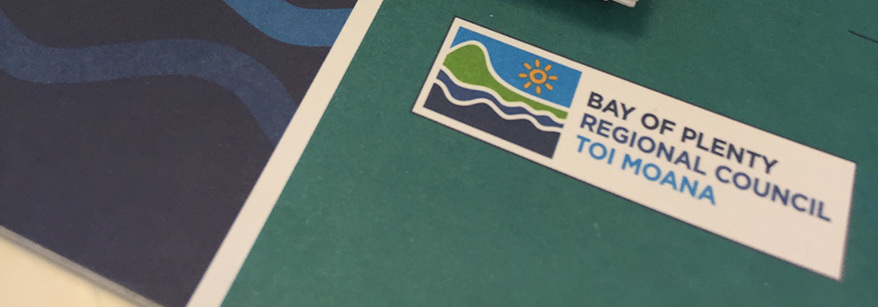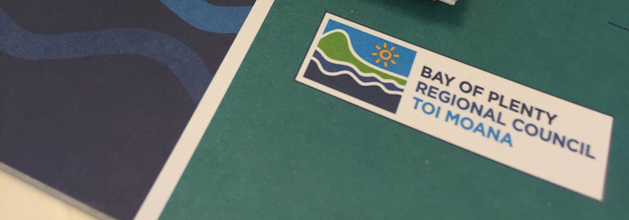Relevant information
- Hearing Procedures
- Proposed Plan Change 13 (Air Quality) - Staff Recommendations Report (section 42a)
- Consequential Changes to the Regional Natural Resources Plan resulting from draft Proposal Plan Change 13 version 6.0
- Proposed Plan Change 13 (original version)
- Staff Recommendations with Submitters and Further Submitters by Submitter
- Staff Recommendations with Submitters and Further Submitters by Section
- Proposed Plan Change 13 version 6.0 - Track changes
Hearing schedules
- Hearing Schedule 15 October 2018
- Hearing Schedule 16 October 2018
- Hearing Schedule 17 October 2018
- Hearing Schedule 25 October 2018
- Hearing Schedule 26 October 2018
Documents and evidence submitted at hearings
- Hearings 15 October 2018
- 01 Tabled Document - Further Submitter 15 - James Pengelly - Written statement
- 02 Tabled Document - Further Submitter 15 - James Pengelly - Dust Audit 2016 Port of Tauranga
- 03 Tabled Document - Submitter 075 - Swap Stockfoods - Ariell Leanne King - Statement of Evidence
- 04 Tabled Document - Submitter 006 - Geoffery Oliver - Points of Discussion
- 05 Tabled Document - Submitter 027 - GBC Winstone - Trevor Stewart Mackie - Statement of Evidence
- 06 Tabled Document - Submitter 027 - GBC Winstone - Theda Hall - Statement of Evidence
- 07 Tabled Document - Submitter 027 - GBC Winstone - Andrew Curtis - Statement of Evidence
- 08 Tabled Document - Submitter 014 - Andrew Clow - Spray Window Times
- 09 Tabled Document - Submitter 050 - Ravensdown Ltd - Anna Mary Wilkes - Statement of Evidence
- 10 Tabled Document - Submitter 050 - Ravensdown Ltd - Carmen Wendy Taylor - Statement of Evidence
- 11 Tabled Document - Submitter 051 - Nga Potiki Resource Management Unit - Arthur Flintoff - Written Statement
- 12 Tabled Document - Submitter 12 - New Zealand Defence Force - Rebecca Davies - Written Statement
- 13 Tabled Document - Submitter 069 - KiwiRail - Pam Butler - Written Statement
- 14 Tabled Document - Submitter 066 - First Gas Ltd - Hywel Edwards - Written Statement
- Hearings 16 October 2018
- 15 Tabled Document - Proposed Plan Change 13 - Table of Minor Corrections
- 16 Tabled Document - Submitter 030 - Trustpower Ltd - Nicola Foran - Evidence
- 17 Tabled Document - Submitter 048 - Lawter NZ Ltd - Romae Alice Calland - Statement of Evidence
- 18 Tabled Document - Submitter 047 - Legacy Funeral Homes Ltd - Megan Exton - Written Statement
- 19 Tabled Document - Submitter 036 - Mercury NZ Ltd - Jennifer Simpson - Statement of Evidence
- 20 Tabled Document - Submitter 036 - Mercury NZ Ltd - Fraser Graafhuis - Statement of Evidence
- 21 Tabled Document - Submitter 067 - Port of Tauranga - Jennifer Simpson - Statement of Evidence
- Hearings 17 October 2018
- 22 Tabled Document - Submitter 058 - Horticulture New Zealand - Lucy Clarke Deverall - Written Statement
- 23 Tabled Document - Submitter 058 - Horticulture New Zealand - Lynette Pearl Wharfe - Statement of Evidence
- 24 Tabled Document - Submitter 065 - New Zealand Agrichemical Education Trust - John-Paul Praat - Statement of Evidence
- 25 Tabled Document - Submitter 065 - New Zealand Agrichemical Education Trust - John-Paul Praat - Growsafe booklet
- 26 Tabled Document - Submitter 055 - Genera Ltd - Keith Frentz - Written Statement
- 27 Tabled Document - Further Submitter 10 - Greg Misson - Presentation
- 28 Tabled Document - Further Submitter 10 - Greg Misson - Email as evidence
- 29 Tabled Document - Further Submitter 10 - Greg Misson - Report as evidence
- 30 Tabled Document - Further Submitter 10 - Greg Misson - Report as evidence
- 31 Tabled Document - Further Submitter 10 - Greg Misson - Report as evidence
- 32 Tabled Document - Further Submitter 10 - Greg Misson - Dust Audit 2016 Port of Tauranga#2
- 38 Tabled Document - Submitter 007 - Western Bay of Plenty District Council - Matthew Leighton - Statement of Evidence
- 39 Tabled Document - Submitter 054 - Tauranga City Council - Karen Edlin - Evidence
- 40 Tabled Document - Submitter 021 - Jodie Bruning - Presentation
- Hearings 25 October 2018
- 41 Tabled Document - Submitter 063 - Silver Fern Farms - Daryn Jemett - Written Statement
- 42 Tabled Document - Submitter 037 -Oji Fibre Solutions - Adrian Low - Statement of Planning Evidence
- 43 Tabled Document - Submitter 037 - Oji FibreSolutions - Gill Chappell - Legal Submission
- 44 Tabled Document - Submitter 037 - Oji Fibre Solutions - Philip Millichamp -Statement of Evidence
- 45 Tabled Document - Submitter 034 - McAlpines - Graeme William Bell - Summary Statement
- 46 Tabled Document - Submitter 034 - McAlpines - Deborah Anne Ryan ( Jacobs NZ) - Summary Statement
- 47 Tabled Document - Submitter 034 - McAlpines - Andrew Siraa (LONZA) - Letter from Andrew to McAlpines (Graeme Bell)
- 48 Tabled Document - Submitter 059 - Allan Neil - Submission and Evidence
- 49 Tabled Document - Submitters 61 & 62 - Sancra & Craddock Farms - Stefan Craddock - Statement of Evidence
- 50 Tabled Document - Submitters 61 & 62 - Sancra & Craddock Farms - Karla Putt (Stratum) - Statement of Evidence
- 51 Tabled Document - Submitter 052 - Department of Conservation - Paul Barry Cashmore - Evidence
- 52 Tabled Document - Submitter 052 - Department of Conservation - Angus Gray - Submission
- 53 Tabled Document - Submitter 072 - Thermal Brewing Company - Lara Charlotte Ruth Burkhardt - Legal Submissions
- 54 Tabled Document - Submitter 072 - Thermal Brewing Company - Gregg Brown - Statement
- 55 Tabled Document - Submitter 072 - Thermal Brewing Company - Ella Tennent (Cheal Consultants) - Statement of Evidence
- 56 Tabled Document - Submitter 033 - Ballance Agri-Nutrients - Robert Maxwell Larman - Statement of Evidence
- 57 Tabled Document - Submitter 033 - Ballance Angri-Nutrients - Stephanie Hantler (Enspire Consulting) - Statement of Evidence
- 59 Tabled Document - Submitter 019 - The Oil Companies - John McCall (Burton Planning Consultants) - Hearing Statement
- Hearings 26 October 2018
- 58 Tabled Document - Submitter 029 - Envirosolve - Rene Haeberli - OekoTube Evaluation, Spectrum Laboratories Test Results and other evidence
- 60 Tabled Document - Submitter 076 - Federated Farmers - Martin Meier - Hearing Statement
- 61 Tabled Document - Submitter 076 - Federated Farmers - Martin Meier - Copy of Further Submission
- 62 Tabled Document - Submitter 076 - Federated Farmers - Martin Meier - Copy of Submission
- 63 Tabled Document - Submitter 045 - Fonterra - Mark Chrisp (Mitchell Daysh) - Statement of Evidence


